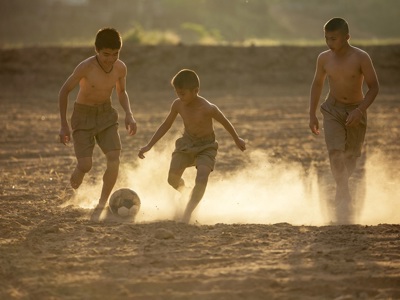
John Smyth: “a problem solved and exported to Africa”
Rebekah Read considers the Makin Review in the context of her experience of handling claims of abuse perpetrated by British citizens in the Global South.
Posted on 14 November 2024
The allegations of sadomasochistic beatings of children and adolescents carried out by John Smyth in the UK and southern Africa, reported this week in the Makin Review, have been chilling. The failure of the Church officers who were told of the abuse to report the abuse to the police, has been found to have “constituted a cover-up”.
The first allegations of abhorrent treatment of children by Smyth became known in tragic circumstances in 1982, when a student at Cambridge attempted suicide in fear of what Smyth had promised to be a “special and more severe” beating to mark his 21st birthday. Following this incident, the Reverend Mark Ruston carried out an investigation into the allegations of violent beatings, many of which took place in Smyth’s sound proofed shed and led to the survivors having to wear nappies to contain the bleeding, concluding that the “scale and severity of the practice was horrific.”
Despite this, Smyth was not reported to the police. As the allegations of the “brutal abuse on an industrial scale” were unknown to the UK authorities, astonishingly, Smyth was able to relocate to Zimbabwe where he continued to engage with children and adolescents, running Christian camps at which he continued to carry out beatings and enforce nakedness.
In 1995 Smyth was charged with homicide following the naked body of a 16-year-old boy, Guide Nyachuru, being found in the swimming pool at one of his Christian camps. Later, in 1997 he was charged with five counts of criminal injury in relation to incidents at a camp when five boys were harmed. The prosecution was postponed indefinitely following Smyth (a retired QC) arguing that the prosecutor had a conflict of interest, but Smyth was barred from re-entering Zimbabwe after he moved to South Africa in 2001.
It must be devastating to the survivors of abuse and the family of Guide Nyachuru to know that this tragic course of events could have been avoided had the Church taken appropriate action in 1982. The report estimates his child victims in Zimbabwe and South Africa to number at least 85.
The report raises serious questions about how Smyth was able to travel to Zimbabwe and run Christian holiday camps when this horrifying abuse was known about by senior members of the clergy. There were also missed opportunities during Smyth’s time in Zimbabwe for the Church to investigate allegations and raise issues. This raises real concerns about how the Church of England views its duty to its overseas congregations. The Makin Review claims that “John Smyth was out of sight and out of mind, a problem solved and exported to Africa”.
One survivor of abuse is quoted by the Times as saying that while “Justin Welby goes on a lot about the impact of colonialisation and slavery”, many in Zimbabwe felt the abuse had been “exported by the UK to us”. It is apt for this survivor to mention the impact of colonialisation and slavery, since this history can be part of what enables British abusers to gain access to victims in the Global South through asymmetries of power, be it in multinational corporations, the charity sector or institutions like the Church.
There are many lessons to be learnt from this case to ensure the protection of vulnerable children, both in the UK and overseas. The Makin Review recommends that the Church of England now carries out investigations into the actions of Smyth in Zimbabwe and South Africa, and The Church Times has reported that the Archbishop of Cape Town has urgently requested details of Smyth’s activities in South Africa. These additional investigations cannot come quickly enough. The Makin Review and the police investigation into Smyth’s actions were announced in 2017, despite the Church of England having first had knowledge of the disturbing allegations as far back as 1982. This lack of action meant that Smyth had access to children in Zimbabwe and South Africa for decades after this. The Church should waste no more time in providing restitution for the Zimbabwean and South African survivors of Smyth’s sadistic abuse.
At Leigh Day, we have brought civil claims on behalf of survivors of abuse perpetrated by charity workers, missionaries and individuals working for British organisations overseas who, by virtue of their status and comparative wealth have been able to exploit some of the most vulnerable children in the world. These perpetrators have often fled to the Global South after suspicions of child abuse have been raised in the UK. We work closely with local and international law enforcement agencies and non-governmental organisations to obtain compensation for our clients and recognition of the acts of abuse they have suffered. We represent individuals from disadvantaged, poor and marginalised communities in the Global South, whose situation not only puts them at greater risk, but also makes it harder for them to hold their abusers to account.
For example, we represented 38 individuals, including children who, from as young as four years old, were sexually abused by British Airways pilot Simon Wood while he was on stopover in Kenya and Uganda. Our investigations found that Wood relied on the respect he was afforded as a BA pilot, to gain unfettered access to these children, many of whom were orphans. The abuse, which in some cases amounted to repeated, violent rape, was carried out in orphanages, on trips that he was allowed to take the children on, and in his hotel rooms. Like Smyth and so many other abusers, Wood began abusing children in West Africa after suspicions were raised about his behaviour in the UK. BA settled the case whilst denying liability.
We cannot stress enough the importance of preventing British citizens who have had well-founded allegations of abuse made against them, from travelling overseas whilst the allegations are properly investigated. We will continue to call for greater safeguards to ensure that perpetrators of abuse are not allowed to evade justice.

Leigh Day secures substantial compensation paid by prolific child abuser Mark Frost to eight Thai boys he subjected to horrific sexual abuse
Leigh Day has secured substantial compensation which has been paid by convicted British child abuser Mark Frost to eight Thai boys he subjected to appalling sexual abuse including rape.



